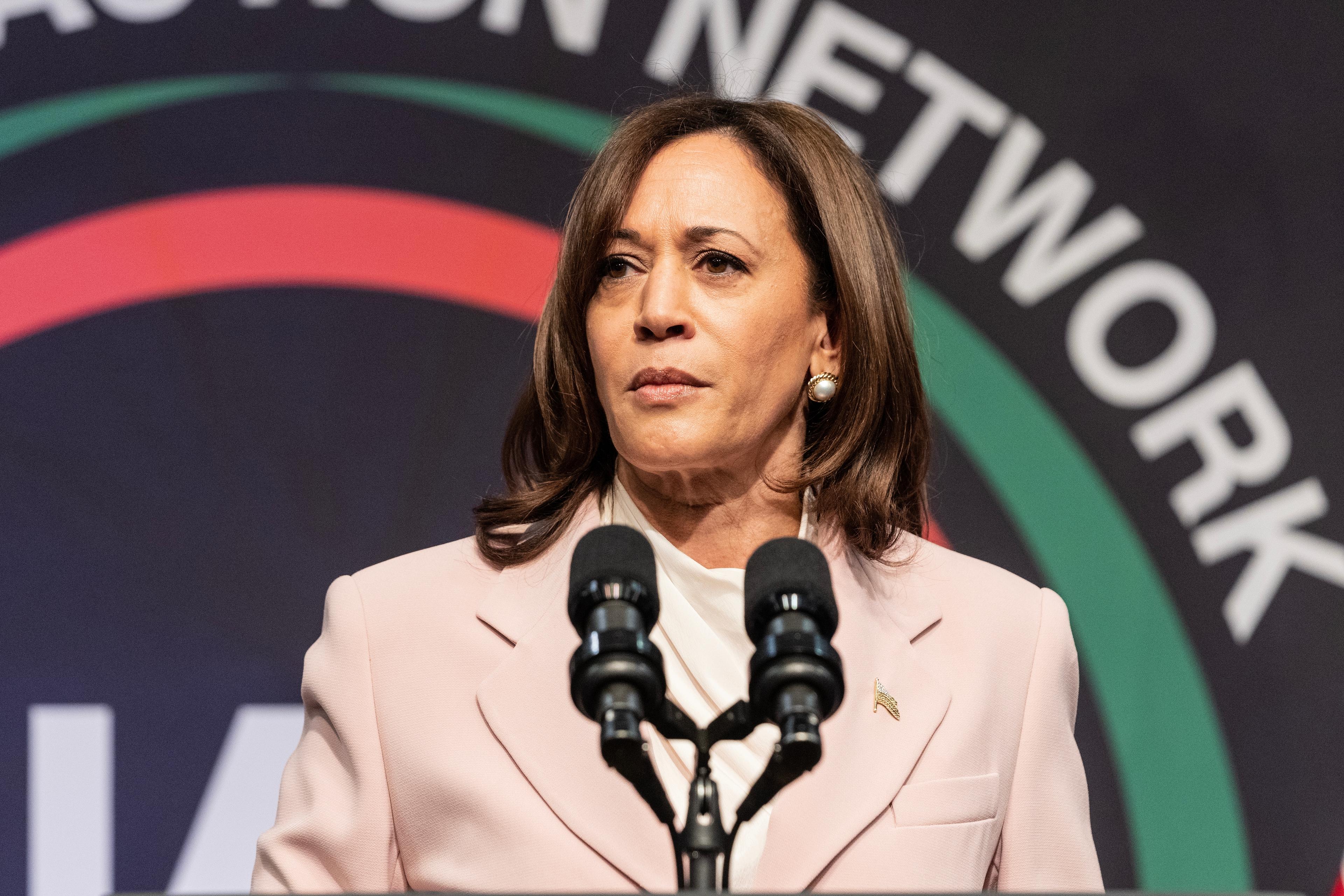Harris, U.S. 2024 Elections
Who is Harris's new Muslim outreach adviser?– and what does that means for Israel?
The Democrats claim to be the party which is opposed to discrimination– yet Harris keeps making choices in direct contrast.

Vice President Kamala Harris's presidential campaign has hired Nasrina Bargzie to lead outreach to Muslim and Arab voters, a move that has drawn both praise and criticism from various quarters.
Bargzie, who previously advised Harris in the White House on "Muslim, Arab and Gaza-related issues as well as reproductive rights, voting and democracy," brings a history of advocacy that has raised eyebrows among some pro-Israel leaders.
The Controversy
At the heart of the debate is a 2015 article co-authored by Bargzie in the UC Law Journal of Race and Economic Justice. In it, she argued against the premise that students suffer from a hostile educational environment when a particular country or government they identify with is subjected to academic scrutiny.
Bargzie wrote that the handling of civil rights complaints related to Israel-Palestine discussions on campuses had "contributed to a chilling effect... discouraging robust discussion about Israel, Palestine and U.S. policy."
Reactions from Pro-Israel Leaders
Mort Klein, national president of the Zionist Organization of America, expressed deep concern about the appointment. Speaking to JNS, Klein said Bargzie sought "to shut down investigations of the groups that harass and attack Jewish students."
Alan Dershowitz, law professor emeritus at Harvard Law School, suggested to JNS that Bargzie's appointment creates an "imbalance" in the campaign's outreach efforts, tilting it in an anti-Israel direction compared to the pro-Israel stance of Ilan Goldenberg, who leads Jewish voter outreach for the campaign.
Campaign's Response
The Harris campaign has stood by its decision. In a statement to NBC News, Bargzie said, "I am honored to continue my work for the vice president, advising on a range of critical issues in this election—from democracy and reproductive rights to Muslim and Arab outreach."
Potential Concerns for Israel
The appointment of Bargzie could raise alarms in Israeli diplomatic circles and among pro-Israel voters in the United States. Her past writings, which critique the handling of Israel-related civil rights complaints on college campuses, may be interpreted as downplaying concerns about antisemitism. This could signal a shift in the campaign's stance on Israel-Palestine issues, potentially leading to policies less favorable to Israel if Harris were to become president. Additionally, some fear that Bargzie's influence might result in increased engagement with groups critical of Israel, possibly altering the long-standing U.S.-Israel alliance. This appointment comes at a time when Israel is seeking steadfast support from its closest ally, especially in light of regional challenges and the concurrent threats posed by Hamas, Hezbollah and Iran.
Potential Impact
This appointment comes at a time when the Israel-Palestine conflict remains a sensitive issue in U.S. politics. It may signal the Harris campaign's efforts to broaden its appeal among Muslim and Arab voters, a growing demographic in key swing states.
However, the controversy also highlights the challenges campaigns face in navigating the complex landscape of Middle East politics while maintaining support from various ethnic and religious groups in the United States.
As the 2024 presidential race heats up, it remains to be seen how this appointment will affect Harris's campaign strategy and her standing among different voter blocs.